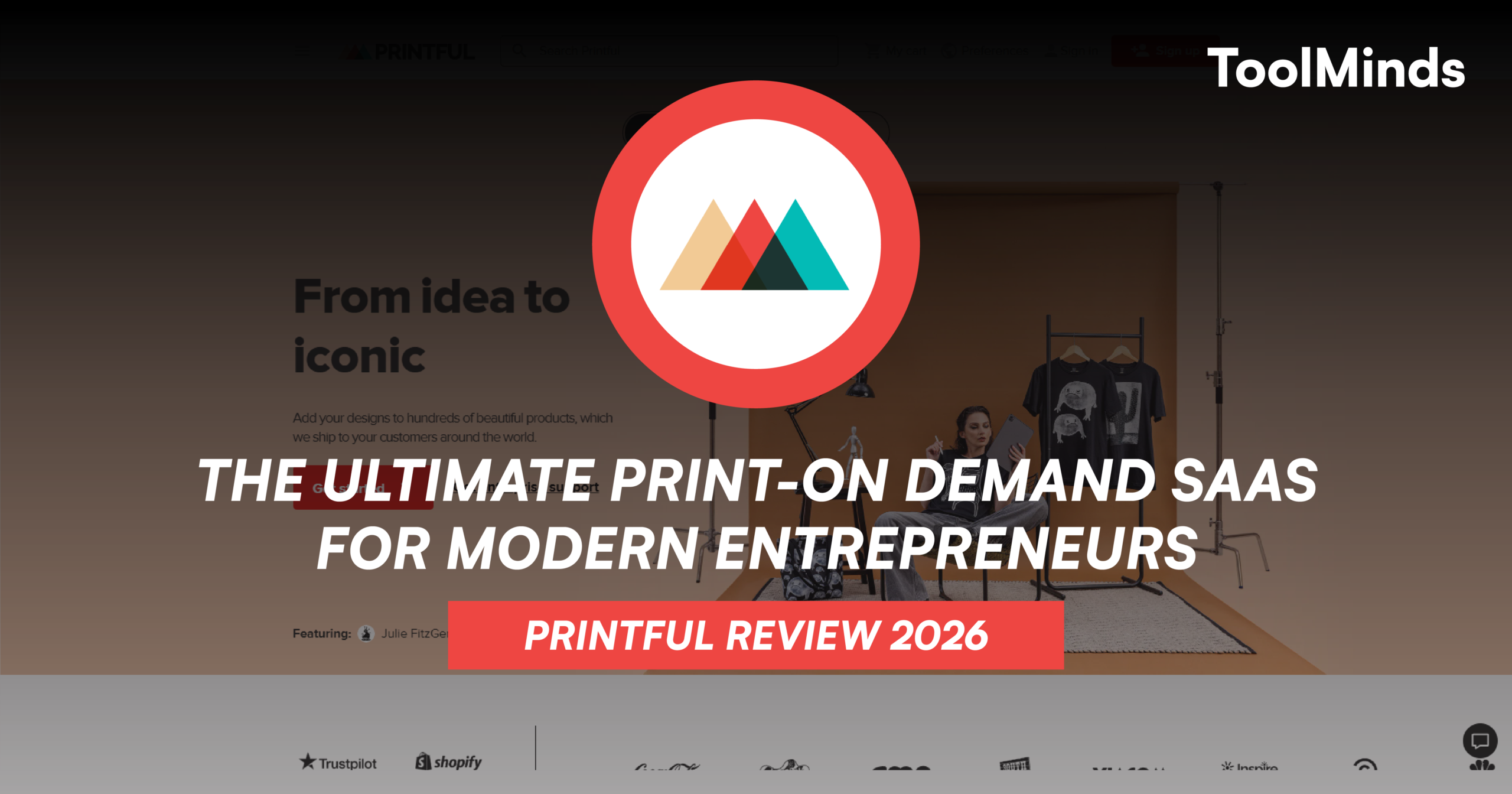In today’s fast-paced digital world, developers seek tools that can streamline their workflows and enhance productivity. Prisma, an open-source database toolkit, has emerged as a significant player in the developer ecosystem. It offers a modern approach to database management, making it easier for developers to interact with their databases. This article delves into the features, benefits, pricing, and functionality of Prisma, providing a detailed review for potential users.
What is Prisma?
Prisma is a next-generation ORM (Object-Relational Mapping) tool that simplifies database workflows. It provides a seamless interface between your database and application code, allowing developers to work more efficiently. Prisma supports various databases, including PostgreSQL, MySQL, SQLite, and SQL Server, making it a versatile choice for different projects.

How Prisma Works
Prisma functions through a series of interconnected tools that streamline the process of interacting with databases:
1. Schema Definition
Developers define their database schema using the Prisma schema language. This schema file describes the data models, their fields, and relationships.
2. Prisma Migrate
Once the schema is defined, Prisma Migrate is used to generate SQL migration files. These files are applied to the database to create or update the database schema.
3. Prisma Client Generation
After the schema is in place, Prisma generates a type-safe client based on the defined schema. This client can be used in the application code to perform database operations.
4. Data Interaction
Developers interact with the database using the Prisma Client. The client provides a simple API for performing CRUD (Create, Read, Update, Delete) operations, making data manipulation straightforward and intuitive.
5. Prisma Studio
Prisma Studio offers a graphical interface for inspecting and managing data. It allows developers to visualize and modify data without writing raw SQL queries.
Key Features of Prisma
1. Prisma Client
The Prisma Client is an auto-generated, type-safe query builder for Node.js and TypeScript. It allows developers to write database queries in a familiar and intuitive way, leveraging the power of TypeScript for added safety and productivity. The Prisma Client is known for its ease of use, enabling developers to interact with their databases with minimal effort.
2. Prisma Migrate
Prisma Migrate is a powerful database migration tool that simplifies schema changes. It helps developers manage their database schema lifecycle, from initial design to deployment. Prisma Migrate supports a declarative approach to database schema management, allowing developers to define their schema changes in a simple and consistent manner.
3. Prisma Studio
Prisma Studio is a visual database browser that provides an intuitive interface for exploring and manipulating data. It offers a user-friendly environment for developers to inspect and edit their database records, making it easier to manage data without writing complex SQL queries.
4. Type Safety
One of Prisma’s standout features is its focus on type safety. By leveraging TypeScript, Prisma ensures that database queries are type-checked, reducing the likelihood of runtime errors. This feature significantly improves the reliability of applications and boosts developer confidence.
5. Performance Optimization
Prisma is designed with performance in mind. It generates efficient SQL queries and optimizes database interactions to ensure fast and responsive applications. This focus on performance makes Prisma a suitable choice for both small projects and large-scale applications.
6. Extensive Ecosystem
Prisma boasts a rich ecosystem of tools and integrations that enhance its functionality. It integrates seamlessly with popular frameworks like Next.js and GraphQL, allowing developers to build modern applications with ease. The Prisma ecosystem also includes plugins and community contributions, providing a wealth of resources for developers.

Benefits of Using Prisma
1. Improved Developer Productivity
Prisma’s intuitive API and type-safe queries make it easier for developers to work with databases. This leads to faster development cycles and improved productivity, as developers can focus on building features rather than managing database interactions.
2. Enhanced Code Quality
Type safety is a core principle of Prisma, which translates to higher code quality. By catching errors at compile time, Prisma reduces the likelihood of runtime issues and ensures that database queries are correct. This focus on type safety leads to more robust and reliable applications.
3. Simplified Database Management
Prisma Migrate and Prisma Studio simplify database management tasks. Developers can easily manage schema changes and explore their data without needing to write complex SQL queries. This simplification makes it easier to maintain and evolve databases over time.
4. Versatile and Scalable
Prisma supports multiple databases and can be used in various types of projects, from small startups to large enterprises. Its performance optimizations and scalability make it a suitable choice for applications of any size.
5. Active Community and Support
Prisma has a vibrant community of developers who contribute to its ecosystem and provide support. The Prisma team is actively involved in maintaining and improving the tool, ensuring that it remains up-to-date with the latest advancements in database technology.
Prisma Pricing Plans
Prisma offers a range of pricing plans to cater to different needs:
Here are the details of Prisma’s plans and pricing:
Starter Plan (Free)
- Projects: 5
- Environments: 2/project
- Support: Community
- Queries: 60,000/month free, $18/million additional
- Database Events: 60,000/month free, $18/million additional
Pro Plan ($49/month)
- Projects: 10
- Environments: 6/project
- Support: Standard
- Queries: 60,000/month free, $8/million additional
- Database Events: 60,000/month free, $8/million additional
Business Plan ($299/month)
- Projects: 15
- Environments: 12/project
- Support: Premium
- Queries: 60,000/month free, $6/million additional
- Database Events: 60,000/month free, $6/million additional
Enterprise Plan (Custom Pricing)
- Projects: Custom
- Environments: Custom
- Support: Dedicated
- Queries: Custom pricing
- Database Events: Custom pricing

FAQs about Prisma
Q1: What databases does Prisma support?
A1: Prisma supports PostgreSQL, MySQL, SQLite, and SQL Server. It offers flexible database compatibility for various project requirements.
Q2: Is Prisma suitable for large-scale applications?
A2: Yes, Prisma is designed to handle large-scale applications with its performance optimizations and scalability features.
Q3: How does Prisma ensure type safety?
A3: Prisma leverages TypeScript to provide type-safe database queries, reducing the likelihood of runtime errors and improving code reliability.
Q4: Can I use Prisma with existing databases?
A4: Yes, Prisma can be used with existing databases. It provides tools to introspect and generate models based on existing database schemas.
Q5: Does Prisma offer support for GraphQL?
A5: Yes, Prisma integrates seamlessly with GraphQL, making it easy to build modern applications with powerful querying capabilities.
Conclusion
Prisma is a powerful and versatile database toolkit that simplifies database workflows for developers. With its intuitive API, type-safe queries, and robust performance optimizations, Prisma enhances developer productivity and code quality. Whether you’re working on a small project or a large-scale application, Prisma offers the tools and support you need to manage your databases efficiently. Its range of pricing plans ensures that there’s an option for everyone, from individual developers to large enterprises. If you’re looking for a modern and reliable ORM tool, Prisma is definitely worth considering.



